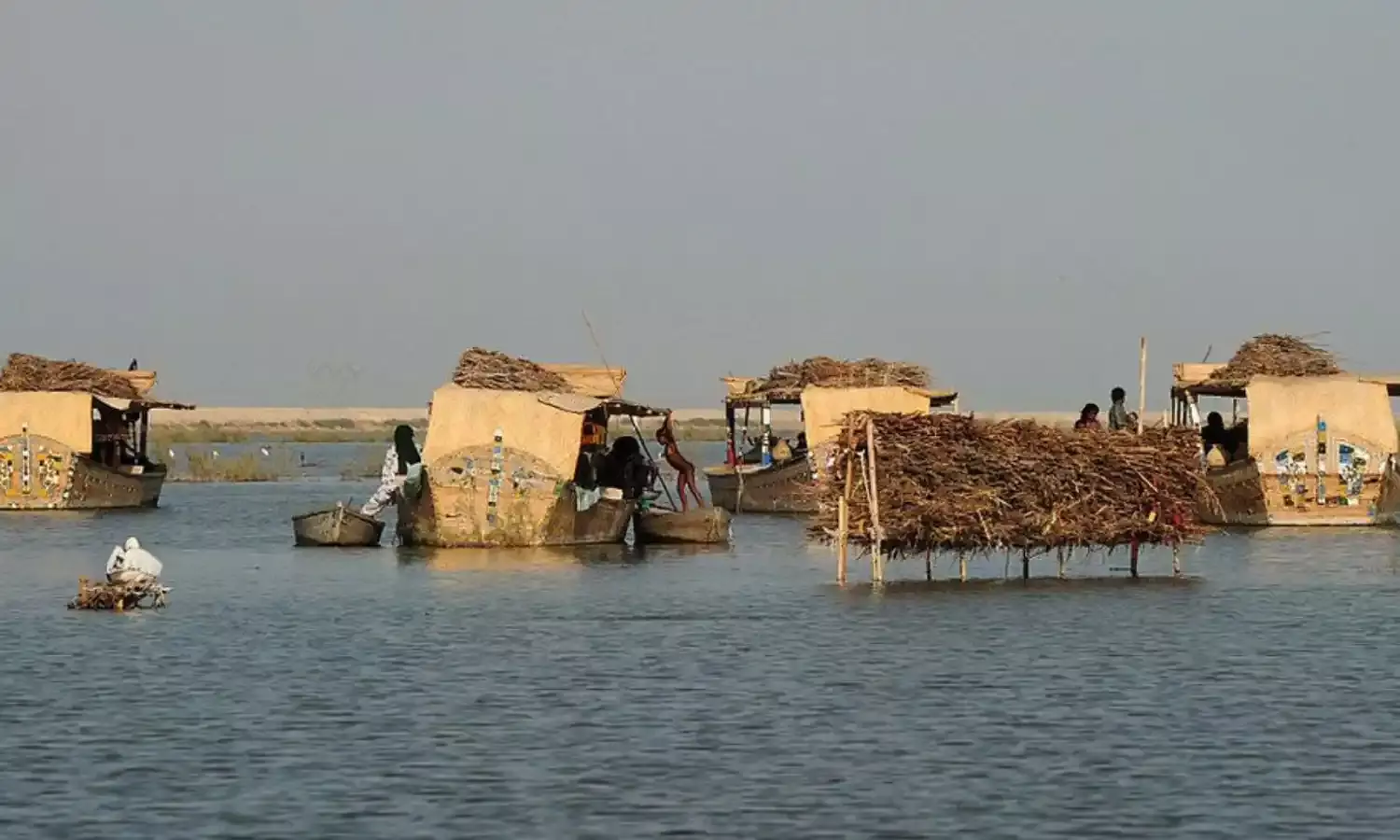Pakistan Floods are a Wake Up Call
Pakistan must seek recasting of the Indus Water Treaty;

Pakistan is currently facing unprecedented floods. One third of the country is under-water, over 1000 have died, and millions had to be evacuated. There has been much destruction of property. With climate change around the corner, Pakistan will have to face more and more floods. Unfortunately there is no immediate solution at hand to deal with this increasing problem.
The Indus Water Treaty (IWT) between India and Pakistan was negotiated in 1960 with the World Bank as intermediary. It was signed in Karachi, by the Indian Prime Minister. This treaty gave Pakistan waters of the three Western rivers: Jhelum, Chenab and Indus, while India got waters of three Eastern rivers: Beas, Sutlej and Ravi.
The distribution of waters between the two countries worked out such that Pakistan got 80.48 percent while India got only 19.52 percent of these six rivers. India got far less water, though it is the upper Riparian country and had the first right over these waters.
How did the Indian PM sign off, for perpetuity, the country's rightful claim on these waters? It also displayed India's lack of skill at the negotiating table, even when Pakistan was on a much weaker wicket.
The world's best canal system was in West Punjab, and it went to Pakistan. Since some of the canals in Pakistan originated in India, water from these canals was allowed to continue to flow to Pakistan for the next 10 years, by which time Pakistan was expected to create alternate facilities from rivers allotted to it.
In addition to this India gave funds to Pakistan to build a new canal system as replacement of that, which existed earlier. This treaty led to a great shortage of water for irrigation in Punjab. It is the only Indian state impacted by the Indus Water Treaty.
Three Western rivers traverse through high mountain ranges in only Indian territory, but in Pakistan they flow across plain country. This puts Pakistan at great disadvantage in that, during the rainy season, it cannot store excess waters of these three rivers. So much of it flows down into the Arabian Sea.
During the rainy season much of the areas along these rivers get flooded. On the other hand during the dry season there is shortage of water for irrigation. Now this flooding problem for Pakistan will exponentially increase with climate change.
It is in Pakistan's own interest to seek recasting of the Indus Water Treaty. With greater percentage of water going to India, will, firstly reduce wasteful flow of water into the sea, secondly avoid flooding of Pakistan and at the same time ensure year-round availability of water in these three Western rivers.
Once this treaty is suitably recast, India should be able to divert some waters of Chenab (known as Chandra Bhaga in Himachal) into the Beas in area of Rohtang Pass in Himachal Pradesh, and elsewhere create storage dams instead of Run of the River Dams, presently laid down in the Treaty.
This will ensure abundant availability of electricity, which Pakistan too can get at cheap rates. Though building storage dams is both time consuming and a costly undertaking for India, it will greatly reduce flooding of Pakistan and water for irrigation will be evenly available throughout the year.
It may be recalled that India had initially built Salal Dam on Chenab river as Storage dam, but Pakistan based on the terms of IWT had this dam converted to a run of the river dam. By this action India's deployment of large funds to create storage dams were wasted while Pakistan started facing problems of flooding from this river. For Pakistan it turned out to be a case of cutting the nose to spite the face.
However, in building storage dams, India will have its own set of problems. Beside huge investment, at places agricultural land and in some cases Indian villages will be submerged and their occupants will have to be rehabilitated.
The excess waters of the Indus River can be used to Irrigate vast stretches of barren lands in Indus, Nuhbra and other valleys in Ladakh and Himachal Pradesh. Thus by and large the redistribution of waters of these six rivers will work out to the advantage of both countries, though to much greater extent for Pakistan.
Therefore, suitably recasting the Indus Water Treaty, both countries stand to gain. This one step will go a long way in improving relations between India and Pakistan. Sooner Pakistan realises the advantages of improved relations with India, the more it stands to gain.
Much of Pakistan's existing problems are linked to its stance and doings against India. Be it wars, occupying Indian territory ( Kargil ) and cross-border terrorism, all of these have worked to Pakistan's great disadvantage and led to a state of bankruptcy. China will merely exploit Pakistan's uncalled for hostility towards India, to its own advantage. India on its part would want nothing other than stable, prosperous and a friendly Pakistan.
Considering the grim future of Pakistan consequent to the possibility of increasing floods, it must seek the recasting of the Indus Water Treaty: sooner than later.
Lt General Harwant Singh is retired from the Indian Army.

